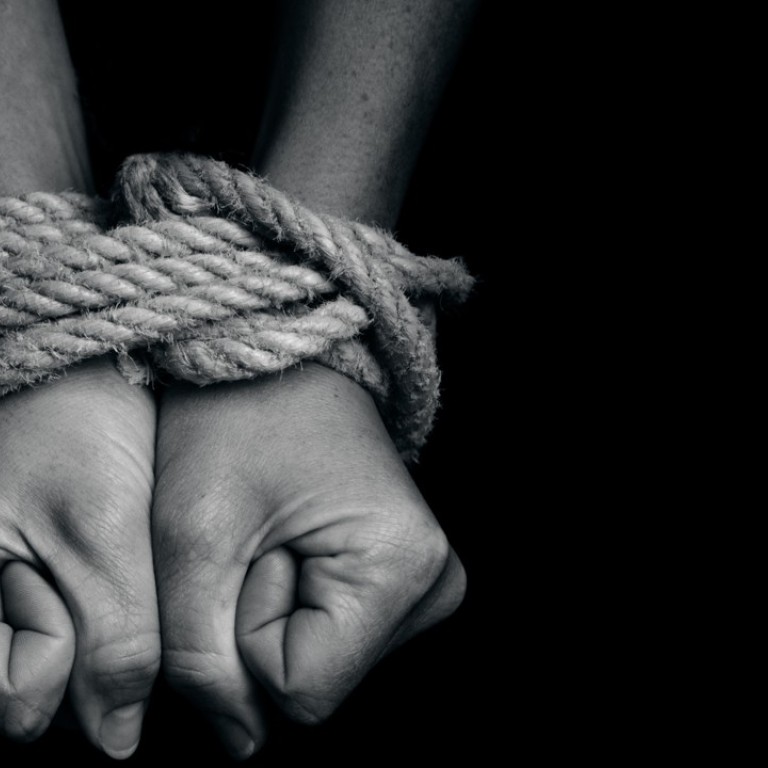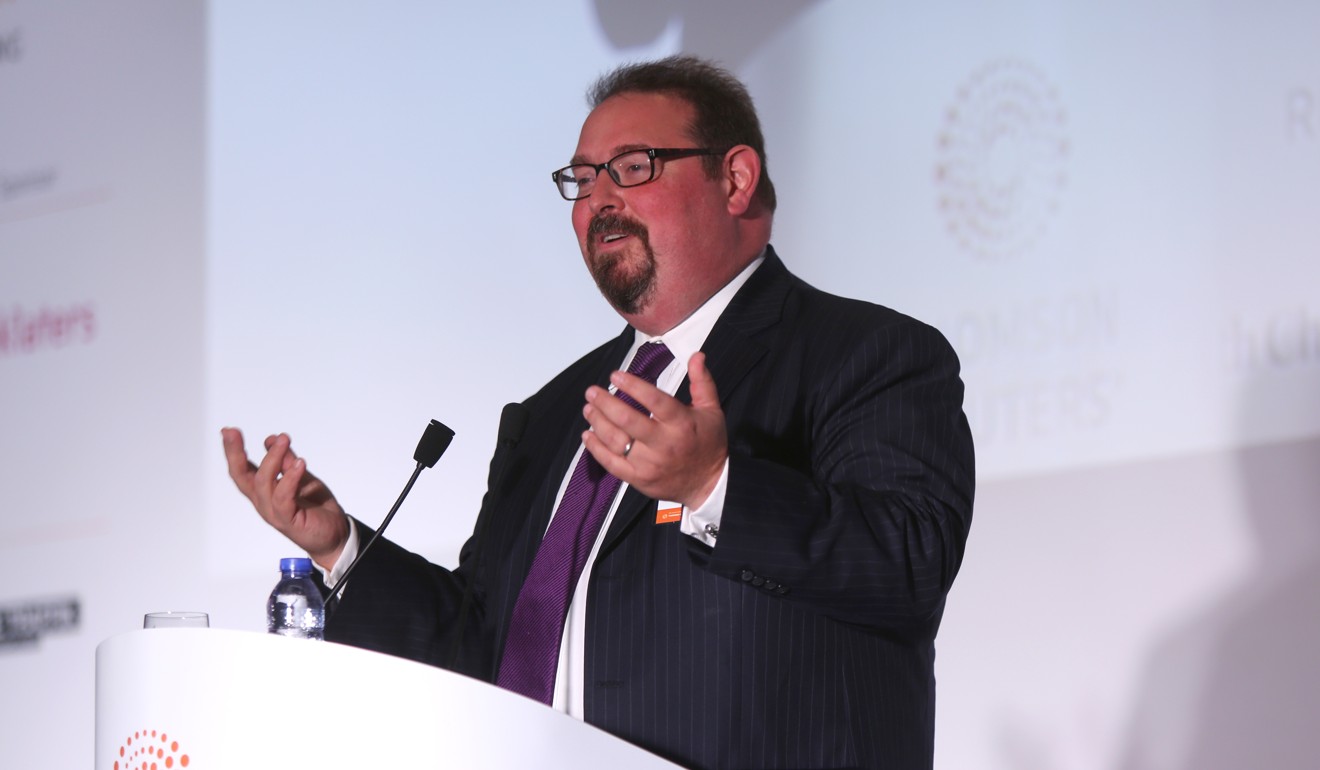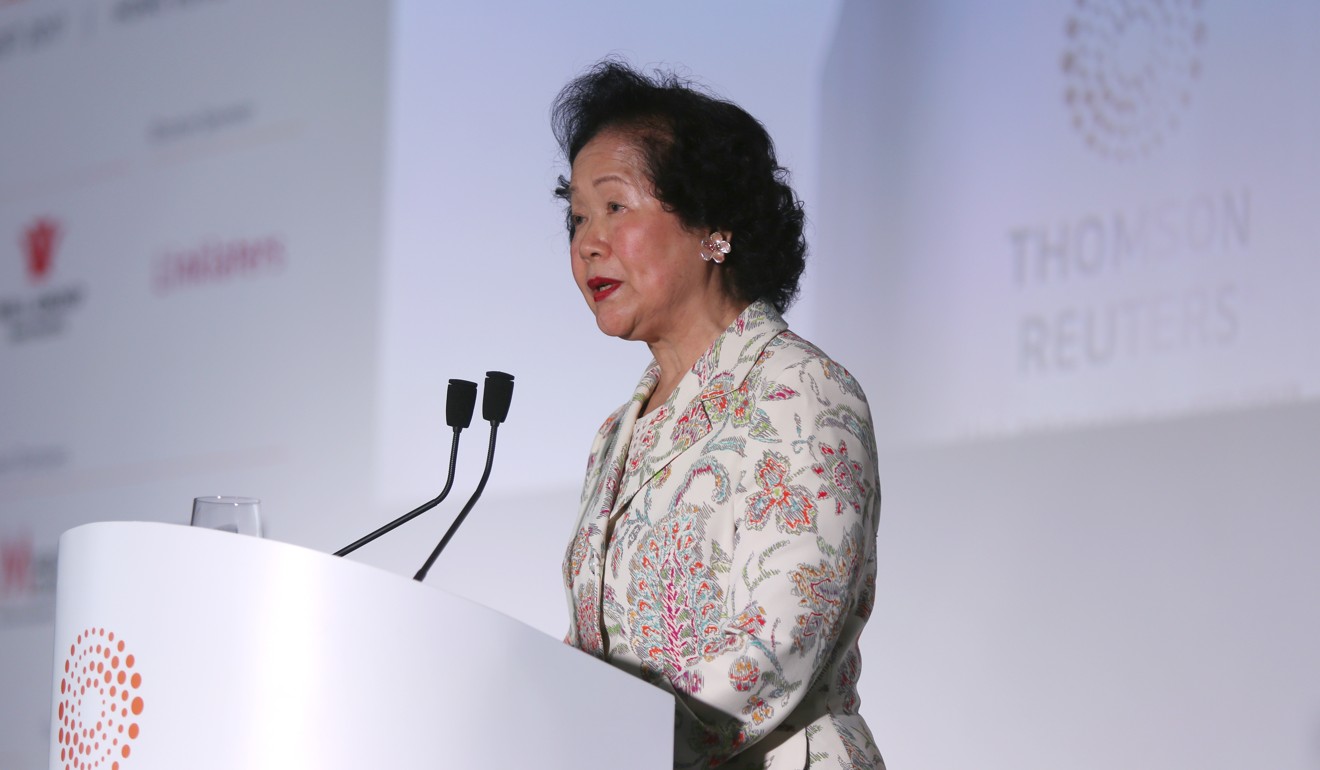
Business community in Hong Kong ‘should do more to tackle human-trafficking in Asia’, says former US prosecutor and diplomat
Former ambassador to the US department’s Office to Monitor and Combat Trafficking in Persons Luis CdeBaca says Hong Kong should use its position as a legal and financial hub to influence change in the region
Former ambassador to the US department’s Office to Monitor and Combat Trafficking in Persons, Luis CdeBaca, has called on the financial industry in Hong Kong to do their bit combating human-trafficking in the region and urged the city’s government to approve an anti-human trafficking law.
“It’s not simply looking whether there are victims of human-trafficking in Hong Kong, which is very important and the responsibility of the authorities. The business community can also make a difference for the entire region if it insists that everyone looks at supply chains and business practices,” CdeBaca, a former US prosecutor and diplomat, said.

“Because of its influence in Asia as a legal centre, a banking centre and a place of due diligence, the Hong Kong business community has an opportunity to impact human-trafficking in Thailand, Cambodia, Malaysia, Indonesia, as deals get made or loans get given,” CdeBaca said.
He said banks have to make sure human-trafficking is not intruding into the supply chain.
Hong Kong does not need laws against human trafficking, says government: victims are routinely criminalised, says Bar Association
“If you have somebody working as a merchant, buying a company or even contracting someone as a supplier in a risky area, say buying shrimp from Thailand, then they have an opportunity in their due diligence to ask the tough questions. [They can] even put requirements on the potential borrower, before they decide whether to go in,” he said.
CdeBaca said that just as toxic assets or environmental issues are explored when doing due diligence, exposure to human-trafficking in a company supply chain should also be taken into account.
The United Kingdom, for instance, now requires large companies to file a disclosure in London showing what they are doing to fight human-trafficking. Similar disclosures have also been discussed in Australia.
“In the next 10 years, this will become industry standard for most of the stock markets,” CdeBaca said, adding that while the business community must do their bit, local government must also do more.
“The idea of getting domestic legislation against human-trafficking is very important. Most of the other governments in the region have that,” the former ambassador said.
Human-trafficking in Hong Kong: hidden in plain sight
In June, the 2017 US Trafficking in Persons Report placed Hong Kong on the Tier 2 Watch List for the second consecutive year, noting the government continually failed to tackle cases of forced labour and human-trafficking due to lacking laws that effectively deter such crimes.
Advocates and experts in the city have repeatedly called for an anti-human trafficking law, as current provisions forbid human-trafficking for the purpose of prostitution, but not forced labour.
The government, however, has dismissed the need to introduce an anti-trafficking law, arguing such crimes are not common in the city.

Under current laws, “if you have a maid ... trapped inside a house and beaten by their employers, the case is more likely to be dealt with, if at all, simply as an assault. Which does not capture the enslavement that has happened,” he said.
CdeBaca gave the example of jurisdictions that approved legislation and that then saw an explosion in prosecutions.
“We know Hong Kong has very good law enforcement, very good police and prosecutors, but without having the tools to address the issue, there will be no cases. That does not mean it’s not happening.”
Hong Kong students design app to help human-trafficking victims
Hong Kong’s former No 2 official Anson Chan Fang On-sang, who was the summit’s patron, said some working conditions of domestic helpers in the city could be improved.
In her opening remarks, she said the living-in rule needed to be revisited – referring to cases in which helpers are forced to sleep in places like kitchens and store rooms.
Chan also noted that the overcharging problem – helpers made to pay excessive fees to agencies – must be tackled.

